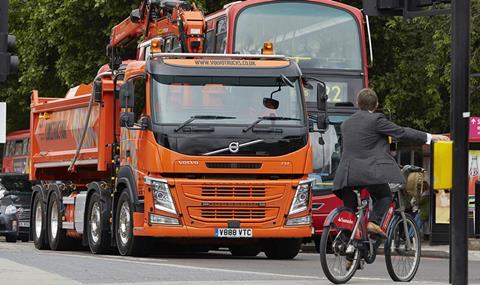
TfL is still unsure about how much vehicle permits for the Direct Vision Standard will cost, as well as who will be responsible for awarding and regulating them.
Speaking at the RHA’s Spring Conference in Birmingham last week, TfL head of delivery planning Christina Calderato said decisions such as these will be decided in the next phase of the scheme’s design.
She told delegates: “In terms of the permit scheme, we don’t know. That’s the next phase of work. Who will issue it and how? Will it be in conjunction with something you’re already a part of, or will it be self reporting? So the next phase will be for us to understand that.
Calderato added that TfL was talking to London councils in particular on DVS permits, and added that the next phase of development will also include an economic impact assessment.
She said: “The next step before statutory consultation will be an integrated impact assessment. This will look at the economic and equality impacts across different groups.”
Read more
- Direct Vision Standard stalling purchase of cleaner HGVs in London, says FTA
- Direct Vision Standard concession welcomed but concerns remain
- Call for clarity on TfL’s Direct Vision Standard
Phase one of DVS will go live in London in 2020, with the second phase implemented in 2024.
The permit scheme, announced last year, is designed to recognise efforts made by hauliers in regards fitting camera and sensor systems.
DVS will rate HGVs depending on the level of a driver’s direct vision from a cab. HGVs will be given a rating between ‘zero-star’ (lowest) and ‘five-star’ (highest). Zero-rated vehicles will be banned from 2020, and three-stars will be required to drive on London’s streets by 2024.
However, the permit as proposed would mitigate this, allowing HGVs over 12-tonnes to continue operating in London past 2020 if they have certain safety equipment fitted.














